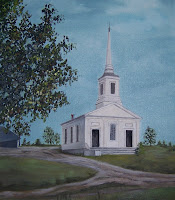Southland Savvy
On a recent week night, a handful of patrons gathered at
Judy’s Friendly Tap in Willow Springs. The dearth of customers is a significant
concern for Judy Meissner, the bar’s longtime owner.
“It’s terrible. It’s just awful. We are a dying breed,”
Meissner said.
Meissner has owned her establishment at 8240 Archer Road for
nearly 39 years. But she’s worried about the bar’s future if Willow Springs
officials don’t approve video gaming.
Several bar owners insist they need video gaming machines to
remain competitive with taverns in nearby communities such as Justice, Burbank,
Countryside, Stickney and Summit where video poker has been approved.
Opponents maintain that introducing gambling to the
community is an unwise choice for a village that has strived for several years
to shed a corrupt image.
The village board is not expected to vote on the matter
until its July 25 meeting.
Bar patrons say the proposal to allow video gaming machines
has been talked about for nearly a year — a lengthy period during which their
businesses have suffered.
Even if the proposal is approved, tavern owners may have to
wait up to a year before the machines are installed, Meissner said.
Illinois Gaming Board spokesman Gene O'Shea said the village
would have to notify the board that gambling was now allowed. That would open
the door to bar owners applying for the state license.
"Licenses are issued first come, first served,"
O'Shea said, adding there are dozens of pages of pending applications listed on
the agency's web site.
"Once they file an application, they go to the back of
the line and have to wait," O'Shea said. "There's no way of knowing
how long it might take to be approved."
Chuck Stroh, owner of Connie’s Grove Inn at 8258 Kean Ave., said a friend who owns a restaurant
and bar in Brookfield makes about $8,000 a month on five video poker machines.
He said the addition of the machines has led to an offer to purchase the
establishment.
Another friend,
who owns a restaurant in Crestwood, also takes in about $8,000 monthly, Stroh
said.
Stroh can only
imagine what he could do with $8,000 additional revenue each month.
“That’s my
mortgage, salary. I could expand or remodel,” said Stroh, who’s owned his bar
for 14 years.
Stroh cannot
understand opposition to the poker machines.
“It’s a
no-brainer. I personally cannot understand it. They’re tying my hands,” said
Stroh, whose business has declined by 25 percent in the past year.
Vicky Stadtler,
owner of Ashbary Coffee House at 8695 S. Archer Road, said she’s frustrated
with the village delaying a vote on the proposal.
“We just keep
getting pushed forward with every kind of excuse,” said Stadtler, who’s owned
the coffee house for seven years.
“We’ve given
(village officials) so much information. We don’t understand what the holdup
is,” she said.
Stadtler has
owned the coffee house for seven years and knows what it’s like to struggle.
Additional revenue would help her increase employees’ salaries, make
improvements to the business and pay bills, she said.
“We’re so
day-to-day, bill-to-bill,” she said.
The village would receive 5 percent of gaming proceeds,
which officials estimate at $30,000 to $45,000 annually, Mayor Alan Nowaczyk said.
The money would
go into the village’s general fund. Officials said they will not discuss how
the money would be used until they vote on the proposal.
Business owners
and gambling distributors each get 35 percent of the proceeds while the state
receives 25 percent.
Illinois enacted
legalizing video gambling in 2009 as a way to generate new revenue, but allowed
municipalities to opt out of the program.
O'Shea said 805
communities in Illinois have approved video gambling, 217 have prohibited it
and 41 are considering whether or not to approve it.
"There are
412 communities that haven't even addressed it, yet," O'Shea said.




